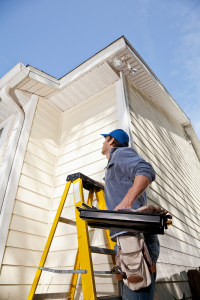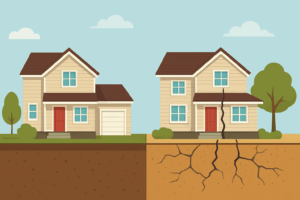
Selling a fixer-upper house can be challenging, but with the right approach, you can maximize your sale price and attract ideal buyers. This guide offers key strategies to navigate the selling process effectively.
Key Points:
- Understand the market demand and trends.
- Prepare your home thoroughly for sale.
- Strategic planning is crucial for a successful transaction.
By following this guide, you’ll be well-equipped to sell your fixer-upper at an optimal price and ensure a smooth selling experience.
Understanding the Fixer-Upper Market
Definition of a Fixer-Upper Home
A fixer-upper is a property that requires significant repairs or renovations. These homes often have outdated systems, cosmetic damage, or structural issues. The unique characteristics of a fixer-upper include:
- Need for Revitilization: Extensive work needed to make the property habitable or attractive.
- Lower Initial Price: Typically priced below market value due to its condition.
- Investment Potential: Opportunity for substantial value increase post-remodeling.
Types of Home Buyers Interested in Fixer-Uppers
Different buyer groups are drawn to fixer-upper properties for various reasons:
- Investors: Often looking for properties they can purchase at a low price, renovate, and sell at a higher price. Their primary motivation is profit.
- Wholesalers: These buyers act as intermediaries. They acquire distressed properties to sell quickly to other real estate investors or flippers without making any repairs themselves.
- House Flippers: Focused on purchasing, renovating, and reselling properties within a short timeframe. They aim to capitalize on the difference between their purchase and selling prices.
Current Market Demand and Trends
The demand for fixer-upper properties has evolved with recent market trends:
- High Demand in Competitive Markets: In areas with limited housing inventory, buyers are more willing to invest in fixer-uppers due to the lack of available turnkey homes.
- Rising Popularity Among Millennials: Younger buyers often seek affordable entry points into homeownership, viewing fixer-uppers as opportunities to customize their living spaces.
Understanding these aspects of the fixer-upper market helps you align your selling strategy with current trends and target audiences effectively.
Preparing To Market A Fixer-Upper for Sale
Creating a positive impression on potential buyers starts with cleaning and decluttering your fixer-upper. A well-maintained home, even one that needs significant repair work, can make a world of difference in attracting interest.
Cleaning and Decluttering
Cleaning and decluttering are essential first steps. Clear out any unnecessary items to create a sense of space and openness. This includes:
- Removing personal items: Family photos, memorabilia, and personal collections can distract buyers from visualizing the property’s potential.
- Organizing storage areas: Clean out closets, basements, and attics to showcase ample storage space.
- Tidying up common areas: Ensure living rooms, kitchens, and bathrooms are free from clutter.
Effective Deep Cleaning Strategies
A deep clean can transform the appearance of your home. Focus on:
- Carpets: Rent a carpet cleaner or hire professionals to remove stains and odors.
- Windows: Clean windows inside and out to let in more natural light.
- Mold Removal: Address any mold or mildew issues promptly with appropriate cleaning solutions.
These efforts not only make your home look better but also signal to buyers that the property has been well cared for.
Addressing Minor Repairs

Investing in minor repairs before selling can significantly enhance buyer appeal without a hefty price tag. Consider these low-cost home improvements:
- Patching holes in walls: Fill and paint over any holes or cracks.
- Replacing outdated fixtures: Update light fixtures, switch plates, and faucets for a modern look.
- Fixing minor plumbing issues: Repair leaky faucets or running toilets to avoid red flags during inspections.
These small touches can boost the perceived value of your fixer-upper, making it more attractive to potential buyers.
Enhancing Curb Appeal to Attract Buyers
Curb appeal plays a crucial role in selling a rehab property quickly and at a higher price point. When potential buyers drive by or view your home online, the exterior is their first impression on the condition of the property, making it essential to ensure your outdoor space is inviting and well-maintained.
Practical Tips for Maintaining an Inviting Lawn
- Regular Mowing: Keep the grass short and even by mowing regularly.
- Watering: Ensure the lawn is adequately watered to maintain a lush, green appearance.
- Fertilizing: Use fertilizers to promote healthy grass growth.
- Weed Control: Remove weeds promptly to prevent them from taking over the lawn.
Landscaping That Complements Your Home’s Style
A well-thought-out landscape design can significantly enhance your home’s curb appeal. Consider these strategies:
- Symmetry: Plant flowers or shrubs symmetrically around walkways and entry points to create a balanced look.
- Seasonal Plants: Choose plants that bloom in different seasons to keep your garden vibrant year-round.
- Hardscaping Elements: Add pathways, stone borders, or garden beds that align with the architectural style of your home.
Simple Yet Impactful Upgrades When Selling A House As-Is
Small changes can make a big difference in attracting buyers:
- Trimming Shrubs and Trees: Overgrown plants can make your property look neglected. Trim shrubs and trees to give them a neat appearance.
- Planting Colorful Flowers: Introduce pops of color by planting seasonal flowers in garden beds or pots near the entrance.
- Mulching Garden Beds: Fresh mulch not only looks good but also helps retain moisture and suppress weeds.
- Cleaning Walkways and Driveways: Power wash any dirt or stains from driveways and walkways for a cleaner look.
Investing time and effort into enhancing your fixer-upper’s curb appeal can be a game-changer. First impressions matter, and an attractive exterior can draw more interest from serious buyers.
Marketing Your Fixer-Upper Effectively

Transparency is crucial when marketing your fixer-upper. Potential purchasers need a clear picture of what they are investing in, which means you should disclose any known issues with the property. Being upfront about structural problems, outdated systems, or other significant concerns builds trust and can prevent unpleasant surprises that might derail the sale later on.
Additionally, conducting a pre-listing inspection can be highly beneficial. This proactive step allows you to identify deal-killer problems early on.
Why Disclosing Issues Matters
- Builds Trust: When buyers know you are transparent, it creates a foundation of trust.
- Prevents Surprises: Disclosing issues upfront ensures there are no unexpected obstacles during closing.
- Attracts Serious Buyers: Honest listings attract buyers who are genuinely interested and prepared for potential repairs, making it easier to sell your home.
Benefits of a Pre-Listing Inspection
- Identifies Major Problems: Pinpoints serious issues that could affect the sale.
- Provides Repair Estimates: Helps you obtain accurate repair costs for negotiation purposes.
- Enhances Marketability: A pre-inspected home signals to buyers that you are committed to a fair transaction.
Investing time in honest disclosure and a pre-listing inspection can make your fixer-upper more appealing. It provides possible buyers with confidence in their purchase, making it easier for you to achieve your selling goals.
Related Articles
- Why Days on Market Matters More Than You Think When Selling for Cash
- Messy Title Problems in Texas: What Every Homeowner Needs to Know
- What Does It Mean to Get a Cash Offer from a Real Estate Investor?
- Selling a Problem Property? Here’s the Fastest Way
- The Benefits of Selling a Hoarder Home As-Is in Texas
- 7 Essential Tips for Selling an Old House Fast In Texas
Setting A Realistic Price For a Home That Needs Work
Conducting a Comparative Market Analysis (CMA)
To set a realistic price for your fixer-upper, you need to conduct a market analysis. This involves examining recent sales data from similar properties in your area:
- Identify Comparable Properties: Look for homes that share key characteristics with your fixer-upper, such as size, age, location, and condition.
- Analyze Sale Prices: Focus on properties that have sold within the last six months to get an accurate sense of current market conditions.
- Adjust for DifferencesTake into account any differences between your property and the comparables to sell a house that needs repairs. If your home has more significant issues or lacks certain features, adjust the price downward accordingly.
Using these steps helps you establish a baseline value for your property.
Understanding Repair Costs and Their Impact
Once you have a baseline value, understanding repair costs is crucial. Knowing these costs will help shape your pricing strategy:
- Estimate Repair Costs: Get quotes from contractors to understand how much it would cost to fix various issues in your home. This includes structural repairs, system upgrades (e.g., HVAC), and cosmetic improvements.
- Calculate After-Repair Value (ARV): ARV is the estimated value of your property after all necessary repairs have been made. This figure is particularly important for investors and house flippers looking to maximize their return on investment (ROI).
Pricing Strategies Based on Current Condition
Balancing repair costs with market data ensures you set a reasonable price:
- Price Below Market Value: If extensive repairs are needed, pricing slightly below market value can attract buyers willing to invest in renovations.
- Highlight Potential Savings: Emphasize how buying at a lower price point allows room for customization and future equity growth.
These strategies enable you to navigate negotiations effectively while maximizing interest from prospective buyers.
Other Articles You Might Enjoy:
- Why Days on Market Matters More Than You Think When Selling for Cash
- Messy Title Problems in Texas: What Every Homeowner Needs to Know
- What Does It Mean to Get a Cash Offer from a Real Estate Investor?
- Selling a Problem Property? Here’s the Fastest Way
- The Benefits of Selling a Hoarder Home As-Is in Texas
Targeting the Right Audience: Investors vs. Traditional Buyers
Finding the right buyer for your home in need of repairs can be challenging but crucial for a successful sale. Here’s how you can identify prospective buyer groups who are most likely to be interested in purchasing your property as-is or with minimal renovations required:
1. Cash Buyers
Cash buyers, often investors looking for investment opportunities, are a prime target. They typically have the funds readily available and are more willing to purchase homes that require significant repairs.
- Advantages: Quick closing process.
- Fewer contingencies.
- Motivations: Potential to add value through renovations.
- Opportunity to resell at a higher price.
2. Investors
Investors, including house flippers and real estate wholesalers, look for properties they can renovate and resell at a higher price. These buyers are usually well-versed in the renovation process and understand the potential profit margins.
3. Traditional Buyers
While less common, some traditional buyers may be interested in fixer-uppers due to their lower initial cost. These buyers might be DIY enthusiasts or those with a vision for customizing their home over time.
- Considerations: Willingness to undertake renovations.
- Long-term investment for future resale value.
Understanding these different buyer groups allows you to tailor your marketing strategies effectively. Highlight aspects that appeal to each group, such as potential ROI for investors or customization opportunities for traditional buyers. By focusing on the right audience, you increase your chances of selling your house that needs some work efficiently and profitably.
Highlighting Potential in Your Marketing Materials
When marketing your fixer-upper, it’s essential to spotlight unique selling points and future resale value. Prospective buyers need to envision the possibilities that your property holds.
Emphasizing Unique Features:
- Identify and highlight architectural details, original woodwork, or vintage fixtures that add character.
- Showcase the layout’s flexibility. Open floor plans or large basements can be a canvas for customization.
- Detail any significant updates already made, such as a new roof or updated kitchen appliances.
Future Resale Value:
- Illustrate the neighborhood’s growth potential. Buyers are often interested in areas with rising property values.
- Use data from local real estate trends to showcase potential ROI (Return on Investment) after renovations.
Compelling Marketing Materials:
- High-quality photos and videos can capture attention online. Consider before-and-after images if minor repairs have been completed.
- Create virtual tours to give buyers a comprehensive view of the property.
- Write engaging descriptions focusing on what makes the property unique and its future potential.
By emphasizing these aspects, you make your fixer-upper stand out in a competitive market. Interested parties will be able to see not just what the home is now, but what it could become with their vision and effort.

TX Cash Home Buyers Gives Multiple Offer Options!
Unlock the potential of your home with our multiple offer options. Discover what you qualify for an make informed decisions with confidence.
Selling As-Is vs. Making Repairs Before Selling: Pros and Cons Explained
When deciding whether to sell as-is or invest in repairs, consider your overall goals and timeline constraints. Each approach has its own advantages and disadvantages.
Selling As-Is
✅Pros:
- Speed of Sale: Selling a fixer-upper home as-is can attract cash buyers who are looking for quick transactions.
- Simplicity: Eliminates the need for you to spend time and money on repairs, making the selling process more straightforward.
- Attracts Investors: Off-market cash buyers and investors who specialize in distressed properties are often interested in as-is sales, seeing potential for profit through renovation.
❌Cons:
- Lower Sale Price: Properties sold as-is typically fetch lower prices because buyers factor in the cost of necessary repairs.
- Limited Buyer Pool: The pool of possible buyers may be smaller, mainly consisting of investors or those willing to undertake major renovations.
Making Repairs
✅Pros:
- Higher Sale Price: Addressing minor repairs and upgrades can enhance the appeal of your property, potentially leading to a higher sale price.
- Broader Appeal: A move-in-ready home attracts a wider range of buyers, including those not interested in undertaking renovations themselves.
- Better Market Positioning: Properties that have been partially or fully renovated often stand out better in listings, receiving more attention from traditional buyers.
❌Cons:
- Time-Consuming: Completing repairs can delay your sale, which may not align with urgent selling timelines.
- Upfront Costs: Investing money into repairs carries financial risk, especially if the improvements don’t significantly boost the property’s value.
Evaluate your specific situation carefully. If speed and simplicity are paramount, selling a house for cash might be the better route. Conversely, if maximizing sale price and appealing to a broader audience is your aim, investing in necessary repairs could pay off.
Working with an Experienced Agent Who Knows Fixer-Uppers Inside Out
Partnering with a traditional real estate agent familiar with fixer-uppers can significantly enhance your selling experience. These agents bring specialized knowledge and strategies tailored to distressed properties, making the process smoother and more profitable for you.
Benefits of collaborating with an experienced agent:
- Market Insight: Agents who frequently handle fixer-upper properties have a deep understanding of the market dynamics, including buyer behaviors and pricing trends. They can provide valuable advice on how to position your home to attract the right audience.
- Effective Marketing: A seasoned agent knows how to craft compelling listings that highlight your property’s potential. They use professional photography, engaging descriptions, and targeted advertising to reach buyers who are specifically interested in renovation projects.
- Negotiation Skills: Negotiating the sale of a fixer-upper can be complex due to the property’s condition. An experienced agent can skillfully negotiate offers, ensuring you get the best possible deal without compromising on key terms.
- Network Access: Agents often have established relationships with investors, wholesalers, and house flippers who are actively looking for properties like yours. This network can lead to quicker sales and potentially higher offers.
When selecting an agent, review their track record with similar transactions. Look for testimonials or case studies that demonstrate their success in selling fixer-upper homes. Ensure there is a clear understanding of their agent commission and what services are included in the listing agreement.
The expertise of a knowledgeable agent can make all the difference when you aim to sell a fixer-upper house efficiently and profitably.
Timing Matters: Navigating Market Conditions When Selling Your Fixer-Upper House
Understanding current market conditions is crucial when selling your fixer-upper property. The real estate market fluctuates between a buyer’s market and a seller’s market, and each scenario can significantly impact your selling strategy.
Buyer’s Market vs. Seller’s Market
Here’s what you need to know about selling a home in a buyer’s and seller’s markets:
- Buyer’s Market: This occurs when there are more homes for sale than there are buyers. In this environment, buyers have the upper hand, leading to longer selling times and potentially lower offers. Selling a fixer-upper in a buyer’s market can be challenging; you may need to set a more competitive price or offer additional incentives to attract interest.
- Seller’s Market: Conversely, a seller’s market happens when demand exceeds supply. Homes typically sell faster, often at or above the asking price. In this scenario, even properties requiring significant repairs can attract multiple offers, allowing you to capitalize on the high demand.
Analyzing Current Market Conditions
To determine whether it’s a buyer’s or seller’s market:
- Research Local Trends: Check recent sales data for similar properties in your area. Websites like Zillow or Realtor.com often provide insights into current trends.
- Consult with Real Estate Agents: Professionals have access to up-to-date market information and can offer guidance tailored to your specific situation.
- Monitor Economic Indicators: Factors such as interest rates, employment rates, and economic growth can influence market conditions.
Strategic Adjustments Based on Market Conditions
Depending on whether you’re in a buyer’s or seller’s market, here are some strategic adjustments you can make:
💰In a Buyer’s Market
If you find yourself in a buyer’s market, consider the following strategies:
- Focus on enhancing curb appeal and making minor repairs that can make your property stand out.
- Consider offering incentives like covering closing costs or providing a home warranty.
🏠In a Seller’s Market
On the other hand, if you’re in a seller’s market, here are some tips for selling a fixer-upper to keep in mind:
- Highlight the potential of your fixer-upper through compelling marketing materials.
- Be prepared for negotiations and multiple offers, but remain firm on your asking price if demand is high.
Being aware of current market conditions allows you to strategically plan your sale, ensuring you achieve the best possible outcome for your distressed property.
Final Thoughts: Your Options For Selling a Fixer-Upper house That Needs Work
Selling a distressed property requires careful planning and smart choices. You’ve discovered how to get your home ready, improve its appearance, promote it effectively, and determine the right price. By focusing on the right buyers and deciding whether to sell as-is or make repairs, you can increase your chances of a successful sale.
Every fixer-upper is different. Getting advice from experts guarantees that you’re making the right decisions for your specific circumstances. Use these tips to increase your chances of a successful sale with confidence. If you’re looking to sell your fixer-upper house quickly, consider getting a cash offer from TX Cash Home Buyers.
FAQs (Frequently Asked Questions)
What is a fixer upper property?
A fixer-upper property is a home that requires repairs or renovations to improve its condition and market value. These properties often attract buyers who are willing to invest time and money into making improvements.
What repairs add most value to a house?
Repairs that typically add the most value to a house include kitchen and bathroom renovations, updating flooring, and improving energy efficiency through new windows or insulation. These upgrades enhance both the functionality and appeal of the home to potential buyers.
How can I prepare my fixer-upper for sale?
To prepare your fixer-upper for sale, focus on cleaning and decluttering the space to create a positive impression. Additionally, address minor repairs that can enhance buyer appeal without significant costs, and consider deep cleaning areas like carpets and windows.
What are some effective ways to enhance curb appeal?
Enhancing curb appeal can significantly impact the sale of your fixer-upper. Simple upgrades such as maintaining an inviting lawn, trimming shrubs, planting colorful flowers, and ensuring the exterior is clean can attract prospective buyers.
Should I sell my fixer-upper as-is or make repairs first?
Deciding whether to sell your fixer-upper as-is or make repairs depends on your selling goals and timeline. Selling as-is may attract cash buyers looking for investment opportunities, while making repairs could help you achieve a higher sale price.
How do I set the right price for my fixer-upper house?
To set the right price for your fixer-upper, conduct a thorough comparative market analysis (CMA) based on recent sales data of similar properties in your area. Consider repair costs and their impact on pricing strategies during negotiations.
Disclaimer:
The content provided on this blog is for informational purposes only. We are not attorneys or tax professionals. For personalized legal or tax advice, please consult with a qualified professional.
Written by Lisa Martinez, Founder of TX Cash Home Buyers

About The Company
TX Cash Home Buyers helps Texas homeowners sell quickly and simply — even in tough situations like repairs, inherited homes, or financial stress. Founded by Lisa Martinez, we’re known for our local experience, fair offers, and commitment to guiding sellers through off-market sales with clarity and care.




